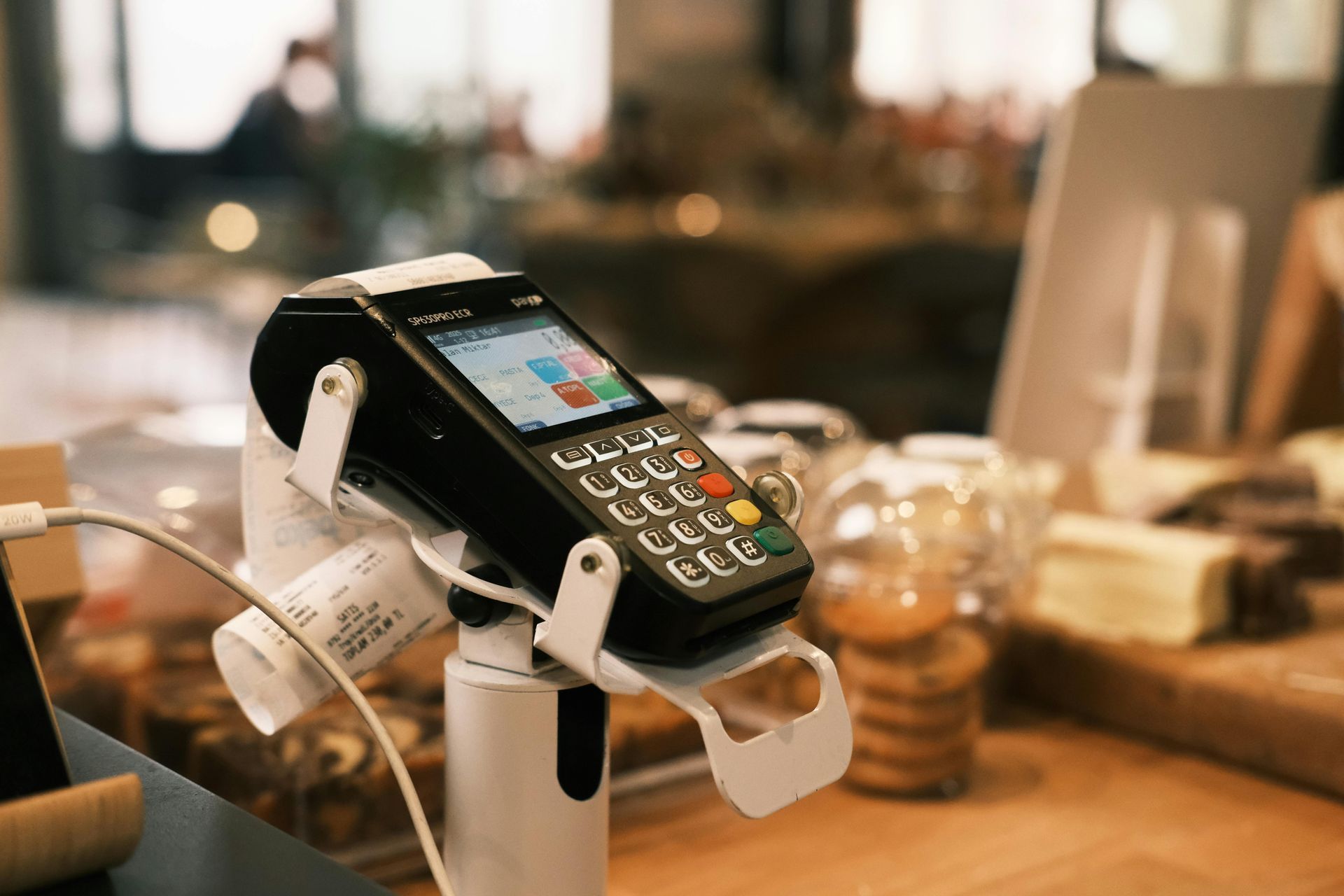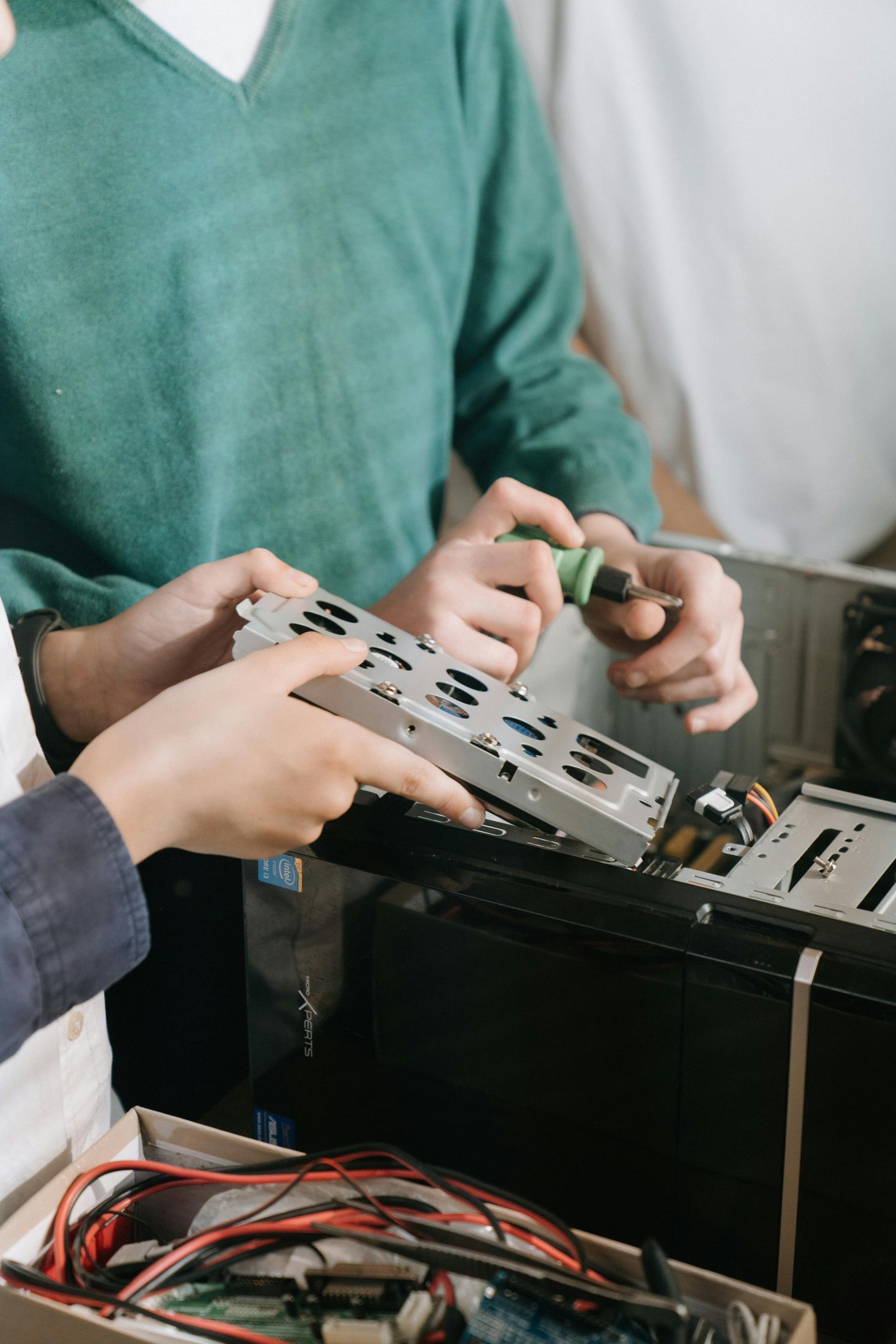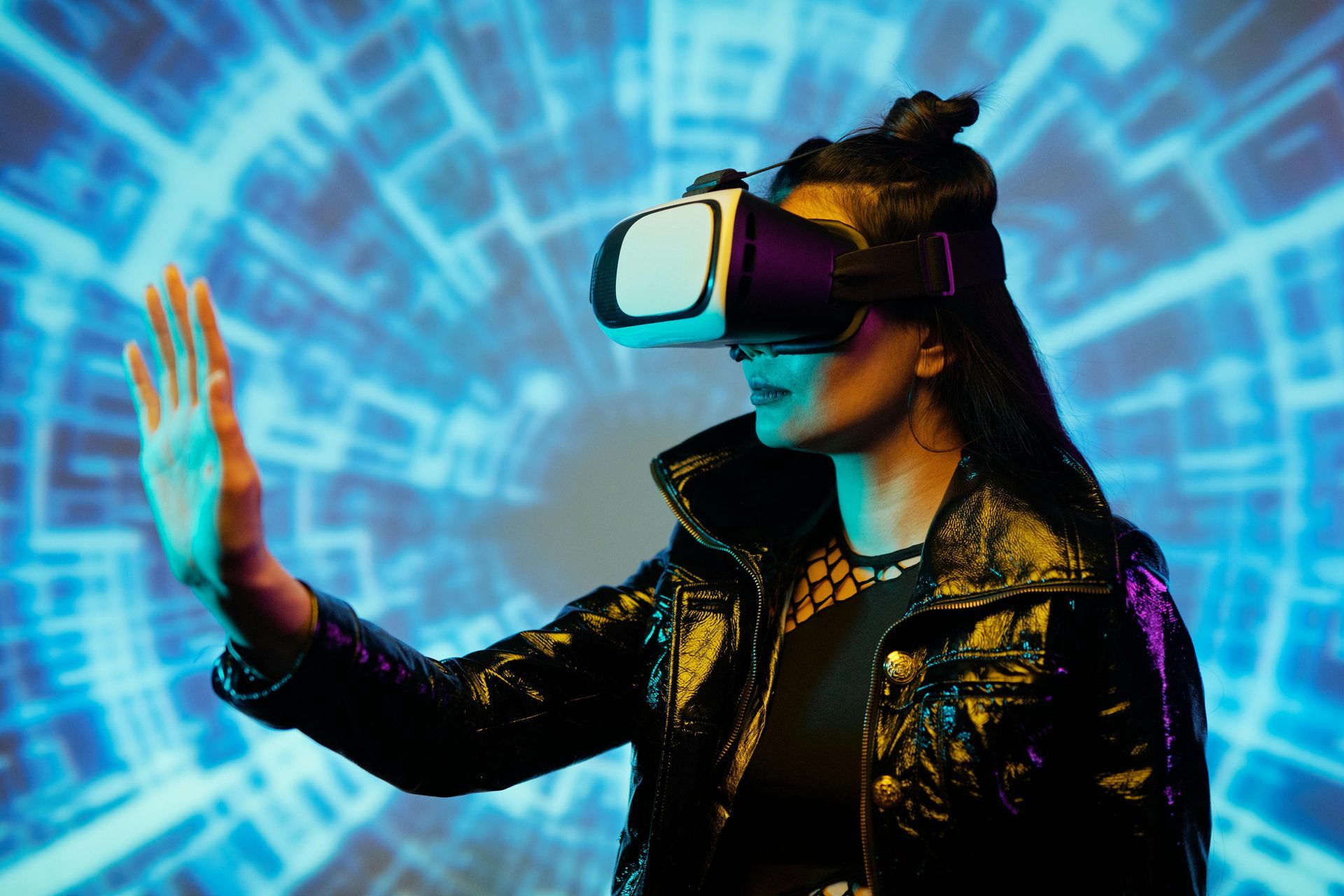TOP TRENDS IN EDUCATION AND TECHNOLOGY PART ONE
Personalised Learning and Blended Learning

Jamieson Lee Hill, August 22nd, 2023
In this article, we explore some of the biggest trends in education and technology in 2023. The educational landscape is rapidly evolving worldwide, and staying informed about the latest trends that will shape the future of learning is crucial.
Educational Technology Trends
There are currently a number of educational technology trends that encompass a wide range of advancements. These include the integration of AI and robotics in classrooms, the emergence of virtual and augmented reality, the increasing utilisation of online learning tools, and the shift towards personalised learning. In this first article, we explore personalised and blending learning and how technology is central to these approaches.
Personalised Learning
“Personalized learning, a prominent and transformative educational trend of our era, represents a paradigm shift in teaching and learning methodologies.”
Source: Gradesmiths.com, May 2023
Personalised learning is a step away from the one model fits all approach. It involves educators creating bespoke learning experiences and journeys for students. The teacher or lecturer plans the learner’s learning based on their individual needs, learning styles and interests. In addition, personalised learning helps to engage students more fully and is far more effective and motivating for them. With differentiation in the tasks personalised learning meets the individual needs of students. It also fosters greater intrinsic motivation in students as they take ownership of their studies.
Using online technology for assessments and real-time data, lecturers and teachers can spot the areas where students have weaknesses and need further assistance. This means that students can be given bespoke resources and guidance from their tutors. Likewise, online technology for education allows students to work together easily online in virtual environments and have immediate access to communication with teachers. Equally, working together online helps students to experience peer learning, and the sharing of ideas and develops their critical thinking processes. In 2024, personalised learning is predicted to develop even further,
“2024 will see further refinement in personalized learning strategies, aiming to customize learning according to each student’s strengths, needs, skills, and interests.”
Source: Moonpreneur.com, September 2022
IP House Supporting Personalised Learning
IP House Colocation Data Centre provides the perfect software and hardware solutions for educational institutions to house their data and systems. It is a more cost-effective option than housing data and infrastructure onsite at a school, college or university.
Furthermore, IP House’s pay-as-you-grow approach means that educational institutions can scale in stages and within budgetary constraints. As increasing numbers of educational organisations switch to personalised learning online, the colocation data centre option to host online learning platforms, educational software and other digital materials is growing in popularity.
In addition to this, machine learning and other algorithms can provide a bespoke analysis of learners’ data to tailor support to students and for their assessments. Technology for education is taking the sector into an exciting new era where individual learning is taking off. IP House Colocation Data centre is proud to be part of that evolution.
Blended Learning
“Blended learning has the potential to transform education by personalizing learning experiences and leveraging the power of technology.”
Source: Arne Duncan, 2023
Blended learning is not a new concept but it is certainly making strides with the advancement of technology. It is made up of conventional face-to-face teaching along with online learning. It enables students to work at their own pace and the resources are differentiated to their personal needs online. For students who struggle with classroom learning, blended learning gives them the opportunity to excel while working online.
With blended learning, students benefit from the in-class and campus learning which provides human interaction with teachers and fellow students. This gives them a more personable and interpersonal experience than solely working online. Online learning includes discussions in pairs and groups, group and individual tasks, video activities and so forth. Having the ability to use online resources gives students the freedom to work when and where they want to. Also, for older students with jobs and family responsibilities, blended learning means they can fit online learning into their busy schedules as well as face-to-face classroom contact time.
“Blended learning is about creating a more student-centered and data-driven approach to education.”
Source: Jeff Bezos, 2023
The flexibility of blended learning technologies gives those students who struggle to learn and focus in a real classroom, the chance to learn in their own way and at their own pace. Moreover, blended learning trains students to use technology and gives them the digital skills needed for the workplace. With experience studying online using digital platforms and collaborating in teams, it is the ideal grounding for hybrid working or fully remote working in their future careers.
Reflections
The differentiation and personalisation of blended learning is one great example of how education technology is revolutionising teaching and learning. IP House Colocation Data centre in London works in collaboration with educational institutions to host their software, hardware and digital platforms for blended learning.
If you would like to find out more about how IP House can host your educational software and digital platforms for your organisation, fill out the form below!
Sources:
1. https://moonpreneur.com/blog/top-education-trends-2023/
2. https://www.class.com/blog/five-education-technology-trends-2023/
5. https://www.forbes.com/sites/bernardmarr/2023/02/17/the-top-5-education-trends-in-2023/
Contact Us











